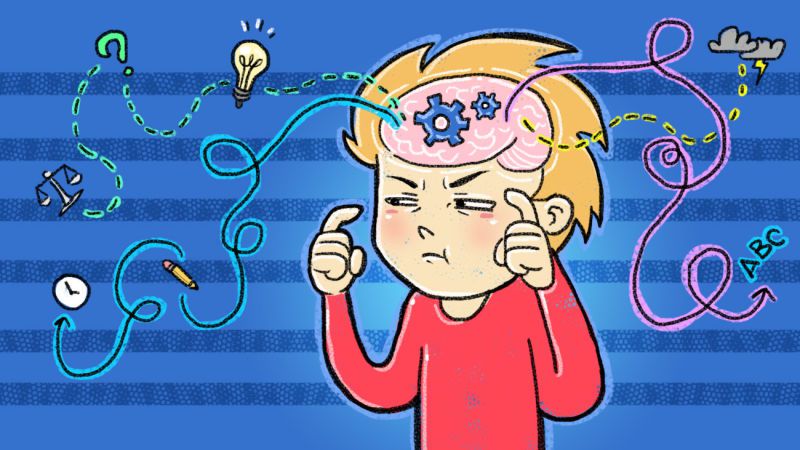“We should all strive to be emotionally healthier, happier people”
– Me, just now

Once you’ve had a minute to recover from the profoundness of the above quote, fresh from the mind of yours truly, actually take a moment to think about it. How many of us actually strive to be happier?
Of course, we think we’re striving to be happier by setting ourselves goals that we then go onto accomplish. Then, when we accomplish them, we experience a fleeting moment of happiness which then passes and we are left feeling somewhat unsatisfied because we were eagerly seeking that happiness from an external source.
As a human race, we are constantly on the road to self sabotage and it’s deeply saddening; largely because 99% of the time, we don’t actually realise we’re doing it. It has become so normal to us. In his book ‘The Four Agreements’, Don Miguel Ruiz describes it as the equivalent to all humans having a skin disease.
“Imagine that the human mind is the same as your skin. You can touch healthy skin and it feels wonderful. Your skin is made for perception and the sensation of touch is wonderful. Now imagine you have an injury and the skin gets cut and infected. If you touch the infected skin, it it going to hurt, so you try to cover and protect the skin. You will not enjoy being touched because it hurts.
Now Imagine that all humans have this skin disease. Nobody can touch each other because it is going to hurt. Everyone has wounds on their skin, so the infection is seen as normal, the pain is also considered normal; we believe we are supposed to be that way.”
In what ways do we self sabotage?
We constantly allow ourselves to be hurt by our own thoughts, words and actions. We experience negative emotions like anger, jealousy and fear and let them blow out of proportion and rule our lives. When these emotions snowball so out of control that it becomes debilitating, we call it mental illness and if we have enough insight, we seek help. However, since we have not been equipped with the means to develop the emotional resilience required for life in the first place, we allow it to get that far before we do something about it.
I know. I’ve been there.
Once you actually take the step to realising that the thoughts you’ve been having all this time aren’t that healthy and perhaps this isn’t the way life was meant to be lived, you will realise that there is actually a minefield of information out there that can help to pull you out of negative thinking. It broadly exists in a field known as ‘cognitive behavioural therapy’ but incorporating principles of mindfulness and even adding a spiritual realm can all be beneficial towards managing unhealthy thought patterns. I am also a glorious lover of self help books so if y’all be wanting a book review I will defs get on that hype.
Below, I’m going to outline some techniques that I have been practising which have really helped me to manage my thoughts. As a result I’ve been so much happier, more present and more able to deal with situations effectively.
I’m going to begin by putting forth a simple concept as I’ve read in ‘The Chimp Paradox’ by Prof Steve Peters and reinforced by my dad (role model, best friend, GP, legend) and modified by me (the greatest blogger you will ever encounter). This has helped me so much. Bear in mind that this is an exceptional oversimplification.
- The human brain is divided into two areas: the limbic system and the pre-frontal cortex.
- The limbic system is the seat of our emotions and contains the hippocampus which is a centre for memory. It is a primitive part of our brain, active in fight-or-flight responses. Prof Peters calls it the chimp.
- The limbic system is usually the filter through which new information goes through before it gets processed (i.e. something happens; cue immediate emotional response).
- The pre-frontal cortex is the newer part of our brain; it is responsible for our personalities, decision making and ‘executive functions’ of analysis and cognition. It is the part of us that makes us different from chimps… Prof Peters describes it as the human.
- In order for new information to get to the human part of us (prefrontal cortex), it has to go through the emotional chimp (limbic system) first.
- The problem is that for most of us, myself very much included- our limbic systems are out of fucking control. We get so consumed by our emotional reactions to a given situation that we aren’t even giving our pre-frontal cortices a chance to sift through the information.
- Result: anger, tears, crying, sadness, fear and no solution.
Now I’m not saying for a minute that we don’t need our emotions; they are absolutely vital to our functioning. What I’m saying is that far too often, they make our decisions for us. They leave us feeling a certain way. If we let our pre-frontal cortices work, we’d be creating space for rationality, analysis and creative thinking.
So how can we apply this knowledge to the way we deal with life? Through trial and error, I’ve found it to be a several-stage-process. Remember: this takes serious mind control. The parts where we fail are recognising it as a problem and in finding the resolve, in that moment, not to allow our emotional selves to get the better of us.
The first part of managing unhealthy thought patterns is actually recognising the emotion itself. I feel emotion most prominently at the pit of my stomach and over my chest area. Suppressing emotion is like adding fuel to a fire so the best thing is to really feel it fully; breathe through it and if needed: cry- just don’t allow any more thoughts in that will make you cry more.About an hour ago, I was on the phone to someone who I was supposed to see after they finished work. I took their call, sitting in my car and I said ‘When shall I swing by?’ and they replied with ‘I kind of want to watch TV for a bit first although you can always hang around while I do it. Or you can come after?’ I put the phone down and I felt sort of upset. It felt like a fullness in my chest, near the bottom of my throat that was close to bursting. I’d been really looking forward to seeing this person all day and I felt a bit rejected. The thought that quickly rose to the surface was ‘You’re clearly ridiculous for wanting to see this person when they don’t even want to see you’. Thankfully, I have a little more self-awareness about me and instead of allowing further thoughts like this and unhealthy emotions to be perpetuated by this situation, I was able to stop and go ‘WHOA- LIMBIC SYSTEM. Melodrama much. Can you not?!’
The second part of managing unhealthy emotion is realising where it came from. Through repetitive, learnt behaviour, we have built up a collection of thoughts in our heads which very quickly form reactions to situations without even thinking. A classic example of one of mine is ‘My mum doesn’t get me’. This is utterly ridiculous because it means that this pre-formed idea dictates the way I feel about everything she does and I lash out at her for no reason and am left feeling angry unnecessarily.Going back to the melodramatic situation in my car outside my driveway, I said to myself ‘Okay- so you’re upset. You yourself are feeling a little silly over it but don’t judge yourself. Why are you feeling this way?’ Immediately, my mind opened up and said ‘I feel this way because I expected that this person would want to see me as much as I wanted to see them and that’s not the case right now. I then went on to assume that the fact they want to watch TV for an hour after work is because that is somehow more important than seeing me. Well, if we break that down a little further, they’ve just had a long day at work and they want to take an hour to unwind. It doesn’t mean that seeing me is not a priority. I don’t know what kind of a day they’ve had and maybe if I’d had a long ass day at work, I’d want a huge cup of tea and to sit in front of my computer, sifting through the shit I read so I can write blogs like this for an hour, before I can contemplate someone else’s company, no matter how much I want to spend time with them’. The feeling at the bottom of my chest quietly began to dissipate and I felt light again.
Managing expectations is everything. It doesn’t mean being a pushover or settling for any less than what you deserve: it is simply a tool that creates peace of mind and actually guarantees happiness. The gap between expectation and reality is where our state of mind lies. When reality exceeds our expectation, we’re thrilled, when it doesn’t match up, we feel like shit and when they are equal to one another we feel peace. It’s very simple.Where my expectation fell short of my reality here is because I made an assumption. We know the old adage: to assume makes an ‘ass’ out of ‘u’ and ‘me’ and it is so damn true.I am not superhuman and therefore, I’m not going to tell myself that I’ll never make an assumption again- but for the future, I’ll be wary of this particular assumption and really, that’s the best I can do to manage my expectation better.
I’m not even kidding: I congratulate myself for every teeny tiny victory where I didn’t let my limbic system win. It might seem small but it isn’t. Through repeatedly doing this, I’ve stopped having beliefs that were massively self-limiting. I stopped thinking that I was crap at my degree, I started seeing every day situations with way more clarity and I’ve since been able to communicate my thoughts and feelings so much better and come up with actual solutions.Just to hammer my point home: let’s envisage how this situation could have gone. I could’ve become upset. I could’ve thought ‘Gowri, you’re a fool for feeling this way’ and berated myself for feeling upset which would’ve made me feel worse. I could’ve cried a lot. I could’ve let my irrational thoughts of unworthiness consume me so that when I eventually did get to go hang out with my TV-watching friend, we’d have a rubbish time. I’d eventually recover but what a waste of my energy it would’ve been.
This is obviously a minor example of an every day encounter that can go wrong because of our flawed thought patterns. Yet, it highlights my point from before: without the tools to recognise and the resolve to think straight, we let our chimps win and we sabotage our own happiness bit by bit, day by day.
It is both empowering and inspiring to stop being victims of our own automated thoughts and self limiting beliefs and start the gorgeous journey that begins with exercises like this one and results in a version of you that you were truly destined to be.
STAY HAPPY FOLKS,
Love and affection,
Your friendly neighbourhood Gowri x
P.S. If you liked this post, do let me know because my brain is full of this shit right now, just takes me an hour or two to throw it down on here.
P.P.S. I’m now late for my TV- watching friend. Oh the irony.
Share this:





